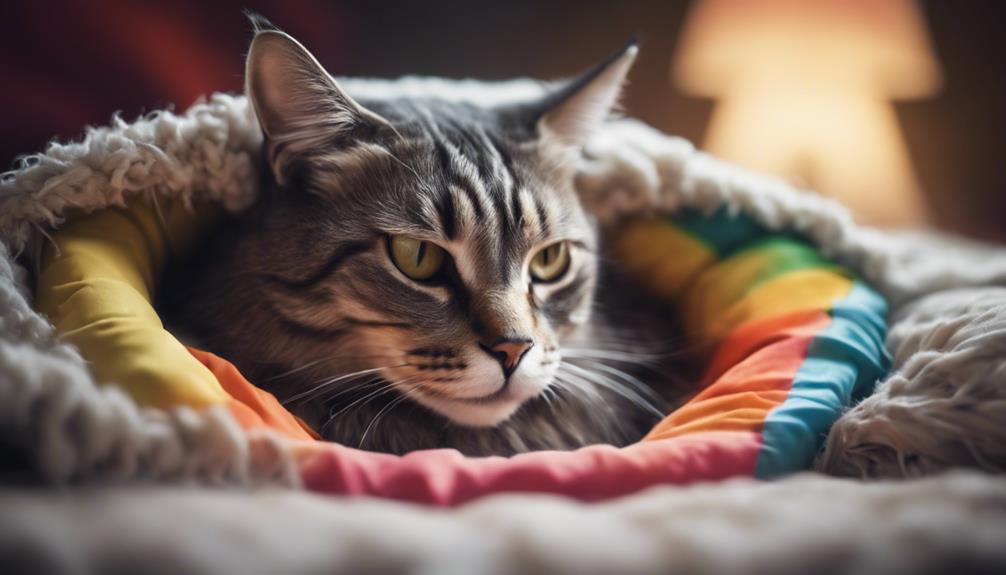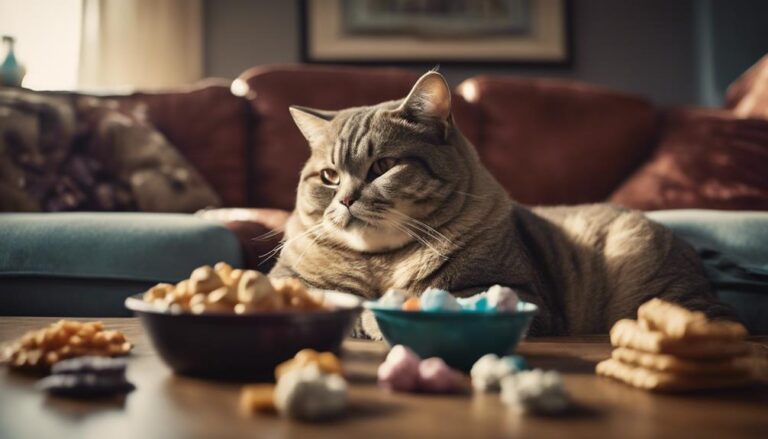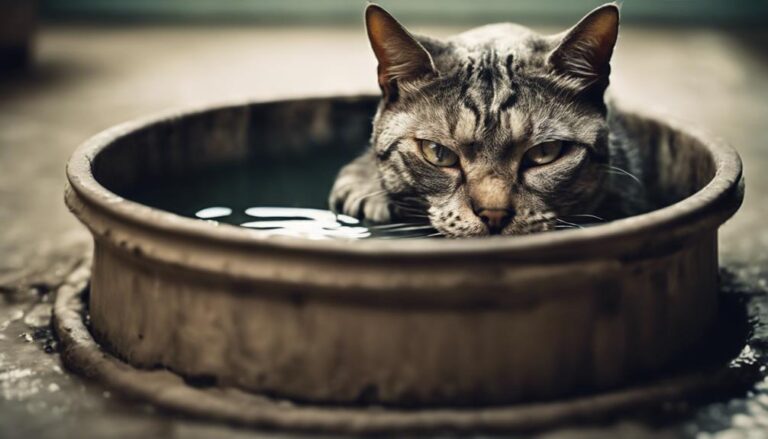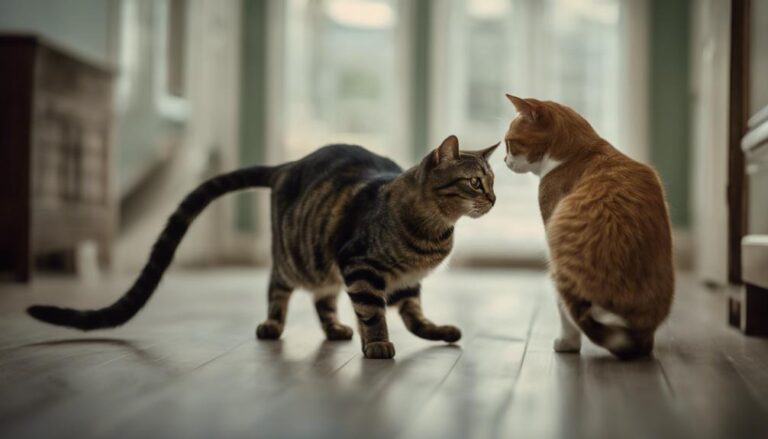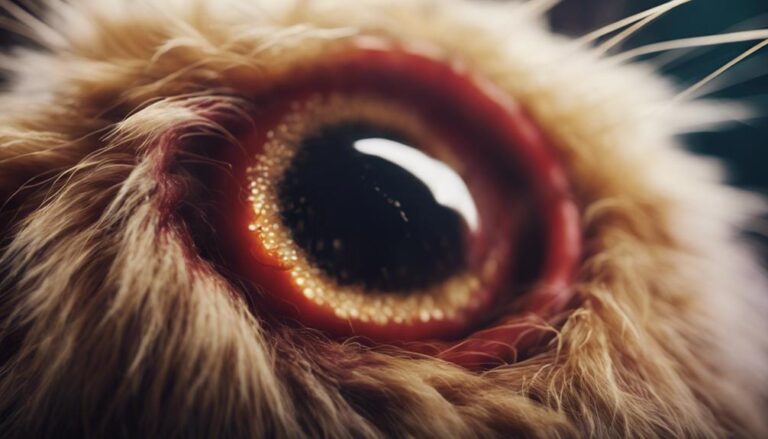If your cat has recently dealt with a urinary blockage, you understand the importance of a smooth recovery process. From strict medication schedules to tailored diets, every step is crucial in ensuring your feline friend's well-being. However, the road to full recovery doesn't end with treatment. There are key factors that come into play post-treatment that can significantly impact your cat's long-term urinary health. How you navigate this period can make all the difference in preventing future issues and promoting a thriving life for your beloved pet.
Recovery Process Overview
During the recovery process from urinary blockages in cats, a strict medication schedule is crucial for aiding in healing. Medications help alleviate inflammation caused by crystals dissolving in the urine post-blockage, speeding up recovery.
Stress management is also vital during this time, as a calm and comfortable environment promotes healing. To support urinary health post-recovery, a prescription diet may be recommended to prevent future blockages. Communication with your veterinarian is key for effective post-recovery care. Observing and reporting any concerning symptoms promptly ensures proper management.
Following the prescribed medications on a strict schedule is essential for a successful recovery. Consistency in medication intake aids in preventing complications and promotes healing. By adhering to the prescribed regimen, you contribute significantly to your cat's recovery process.
Medication and Monitoring
After ensuring your cat's recovery from urinary blockages, the focus shifts to administering prescribed medications and closely monitoring their progress. It's crucial to follow the veterinarian's instructions diligently to aid in your cat's recovery. Here's what you should keep in mind:
- Antibiotics and Pain Relief: Administer antibiotics to prevent infections and provide pain relief to help in the recovery process.
- Monitoring: Keep a close eye on your cat's urine output and behavior to ensure they're recovering well post-treatment.
- Regular Check-ups: Schedule regular check-ups with the veterinarian to track progress and address any potential complications promptly.
- Prescription Diets: Your vet may recommend prescription diets to prevent future blockages and promote long-term urinary health.
Diet and Nutrition Guidelines
To ensure optimal urinary health for your cat, implementing proper diet and nutrition guidelines is essential. Prescription urinary diets play a crucial role in reducing the risk of crystal formation and maintaining proper pH levels in your cat's urine. These specialized diets are formulated to be low in minerals like magnesium and phosphorus, which helps prevent crystal formation.
Additionally, increasing your cat's water intake through wet or canned food can aid in diluting urine and flushing out crystals, further reducing the chances of blockages.
Incorporating urinary diets that include ingredients such as cranberry extract or omega-3 fatty acids can support bladder health and reduce inflammation, promoting overall urinary health for your cat. Remember, proper nutrition is key in managing and preventing urinary issues in cats. Ensuring a balanced diet tailored to your cat's specific needs can make a significant difference in their urinary health and well-being.
Home Environment Adaptations
When adapting your home environment for your recovering cat, consider placing multiple litter boxes in various locations to reduce stress.
Providing access to a water fountain can encourage increased water intake, aiding in recovery.
These simple adjustments can help create a comfortable and stress-free space for your feline friend to heal.
Litter Box Placement
Consider placing litter boxes in quiet, easily accessible areas to ensure a stress-free environment for your recovering cat. To promote comfort and privacy, place litter boxes in safe locations. For convenience, consider having multiple litter boxes in different areas of the home. Use unscented litter to avoid overwhelming your cat's senses. Remember to maintain hygiene by keeping the litter boxes clean and scooped regularly.
- Safe Locations: Ensure the litter boxes are in secure areas.
- Multiple Litter Boxes: Have them in different parts of the house.
- Unscented Litter: Opt for litter that's free of strong scents.
- Hygiene Maintenance: Regularly clean and scoop the litter boxes.
Water Fountain Access
Encouraging your cat's water intake through the use of a water fountain can significantly support their recovery from urinary blockages. Cats tend to drink more from running water sources like fountains, aiding in flushing out crystals and preventing blockages.
These fountains mimic natural water sources, enticing cats to drink more frequently, promoting hydration crucial for urinary tract health. Adequate hydration is essential in preventing crystal formation in cats.
Providing water fountain access at home is a simple yet effective way to support the recovery and ongoing urinary health of cats prone to blockages. Ensure your cat has easy access to a water fountain to help maintain their hydration levels and aid in the prevention of urinary issues.
Preventive Care Measures
To prevent urinary blockages in cats, increase their water intake by offering multiple water sources and wet food. This helps prevent crystal formation in the urine, reducing the risk of blockages.
Additionally, consider incorporating prescription urinary diets into their meals to aid in dissolving crystals and maintaining optimal urine pH for overall urinary health. Managing stress levels in cats is crucial; enrich their environment, provide ample playtime, and minimize potential stressors to promote well-being.
Regular monitoring through bloodwork and urine tests is essential for at-risk cats, enabling early detection and prevention of urinary issues. Furthermore, focus on weight management by providing a balanced diet to reduce the chances of urinary obstructions.
Follow-up Veterinary Check-ups
Regular follow-up veterinary check-ups are crucial for monitoring the recovery progress of your cat post-urinary blockage treatment. These scheduled appointments play a vital role in assessing your cat's urinary health, including kidney function and urine output. By attending these follow-up visits, you ensure that the prescribed treatment plan is effective and can be adjusted if necessary to support your cat's overall well-being.
Veterinary check-ups also help in the prevention of recurrence of urinary blockages, providing ongoing management and care for your feline friend. Monitoring your cat's progress through these follow-up appointments is key to addressing any potential issues promptly and maintaining a healthy urinary system. Stay committed to these check-ups to safeguard your cat's urinary health and well-being in the long run.
Frequently Asked Questions
What Is the Recovery Time for Urinary Blockage Surgery in Cats?
Recovery time after urinary blockage surgery in cats varies but generally spans a few days to a week. Your cat might need hospital monitoring post-surgery. Follow prescribed meds for comfort and healing. Attend vet follow-ups for progress checks.
Should I Put Down a Cat for a Urinary Blockage?
You should not put down a cat for a urinary blockage. Seek prompt veterinary care as euthanasia is typically not necessary. With proper treatment, including catheter placement and supportive care, most cats can recover and lead healthy lives.
What Is the Success Rate of Urinary Blockage in Cats?
When dealing with urinary blockages in cats, the success rate is high with prompt veterinary care. Timely treatment and follow-up care are crucial for a good prognosis. Stick to vet advice for a successful recovery.
How Long Does It Take for a Cat to Recover From Crystals?
Recovering from crystals in cats varies. Depending on severity, it might take days to weeks. Improvement for blockages can show in days with treatment. Track progress via urine output, behavior, litter box habits. Follow-ups with the vet are crucial for complete resolution.

